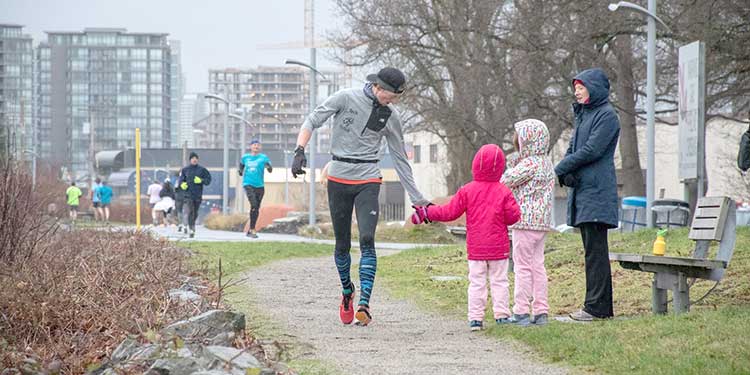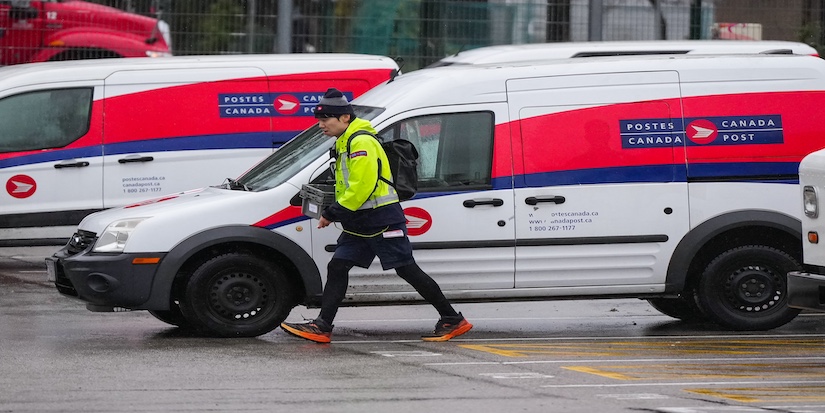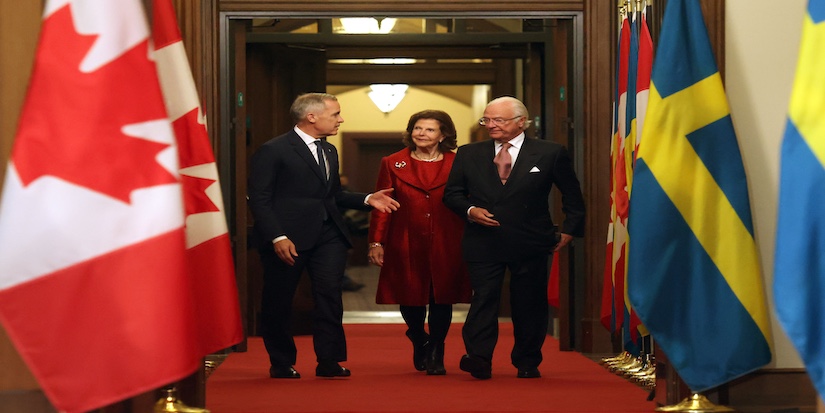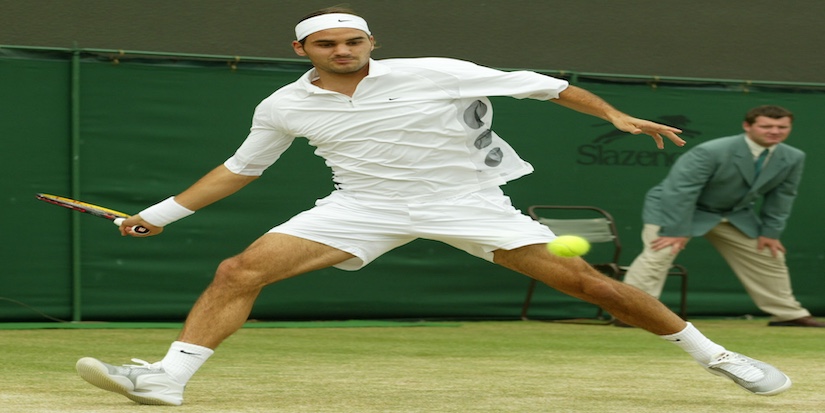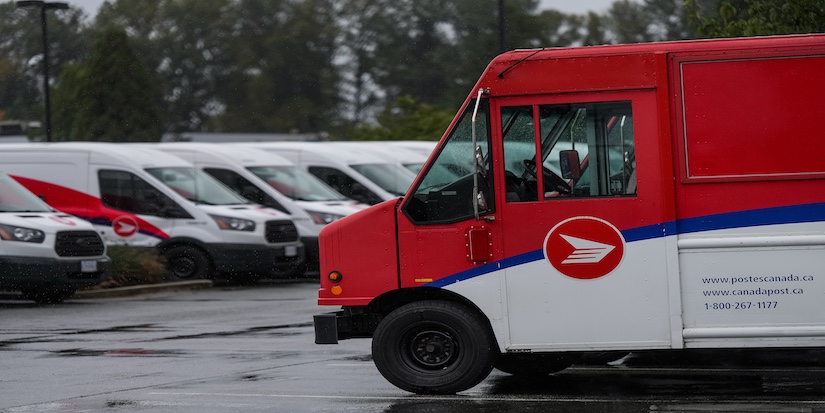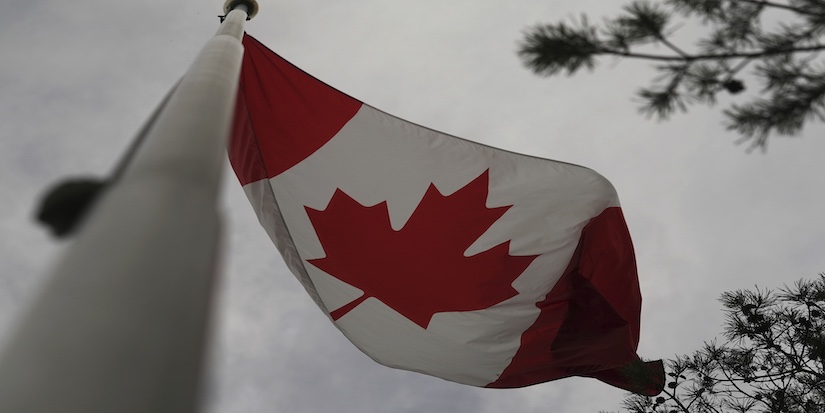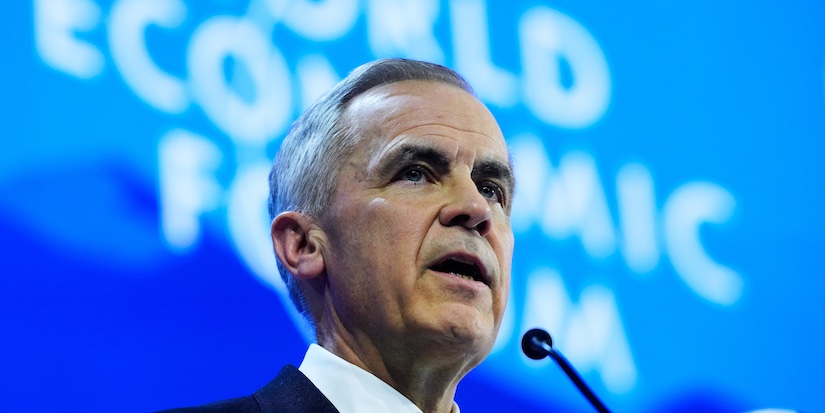Sports
Race walker Dunfee a champion on and off the track
At the start, it was a race to the finish line.
The way to silence the bullies. The doubters.
But with the advance of time, winning is no longer everything. Oh, Canada’s race walking champion is still determined to be the best every time he steps foot on the course. Now, however, success has a very different definition.
“Success is defined by how hard I work in the pursuit of my goals, not whether or not I attain them,” says Evan Dunfee, who was presented the Award of Distinction April 25 at the annual Richmond Sports Awards.
“If I can leave the track feeling like I have given it my all, then it doesn’t matter what the result was I’ll leave with my head held high.”
Dunfee, 28, says the pursuit of excellence through sports has fundamentally changed him. He always had an interest in athletics, but when he joined the vaunted Richmond Kajaks Track and Field Club—first as a runner and then race walker—that’s when the passion for sports began.
“My motivations are completely different (now),” he says. “When I started race walking 18 years ago I was driven by a desire, even a need, to win. Winning was success and anything else was failure.”
Perhaps the defining moment in Dunfee’s athletic career is also one that defined clearly the person. And, in the process, became a defining moment in Canadian sports history.
For a few hours at the 2016 Summer Olympic Games in Rio de Janeiro, Brazil, he was an Olympic medallist. Crossing the finish line in fourth place in the men’s 50-kilometre race, he was upgraded to the podium after Japan’s Hirookie Arai was disqualified. Arai appeared to bump Dunfee during the final stretch of the race. But after a jury of appeal reinstated Arai, Dunfee demonstrated a level of sportsmanship that endeared him to Canadians. He simply let the results stand, with his time of three minutes, 41.38 seconds both a new Canadian record and best-ever finish by a wearer of the maple leaf. Earlier in the Games, he placed 10th in the 20 kilometre race.
Dunfee and Arai have forged a friendship, and the former has become a favourite in Japan where the next Olympic Summer Games will be held in just over a year.
Brotherly love spawns career
Dunfee was actually the second member of his family to take up race walking. His older brother, Adam, who took up race walking after an appendicitis, introduced him to the sport and early on would offer “lessons.” On one memorable occasion, prior to a competition Evan was entered in, Adam went over the two rules of the event:
“One foot on the ground at all times, and have your front knee locked,” stressed Adam, who now laughs about it.
“I don’t think he got disqualified in that race so I guess I did a good job.”
Now a sports broadcaster in Ontario, Adam also continued to compete a bit after high school and was a regular training partner Saturday mornings at Burnaby Central. He could see early his sibling had potential and became even more convinced when Evan—who at the age of 10 won his first-ever race over 800 metres—passed him during one of the training sessions.
The aftermath of the 50-kilometre race in Rio heightened Adam’s admiration and respect for Evan.
“Going from fourth to third then back to fourth was quite a day, and he probably had a solid case if he wanted to appeal, but he didn’t think Hirooki intentionally interfered with him and therefore appealing was a disingenuous thing to do. The way he handled everything that day made me extremely proud (and got me a free sandwich).”
Coach saw special talent
Gerry Dragomir, Dunfee’s longtime race walking coach, recalls the oddity that stood out when he first saw his protege in action.
“He was wearing track spikes and was still faster than the kid his age,” Dragomir explains. “Track spikes are probably the last and worst choice for race walking. They are made to be stiff and inflexible, where you should be able to fold a race walking shoe in half. It took more than a season to give up his spikes.”
But, in Dunfee, Dragomir saw a special talent who was as keen for race walking as any youngster he’d seen up to that point. And he kept returning to practice, regardless of how challenging the workouts became.
“Evan has a capacity for race-walk training that is greater than all but a few athletes in the world,” says Dragomir. “He also has developed and refined the ability to perceive where his body is in space to a very exacting degree. This makes it easier for him to generate the small changes that are necessary for improvement at his level of competition. Of course the downside of greatest strengths is that they are also prime to be greatest weaknesses. We’ve learned a lot about that since the Rio Olympics.”
Dragomir says at Dunfee’s level it isn’t so much about being better as being the best on the day. The final piece he’s putting in place is to read the situation as it evolved over the three to four hours of his event, and position himself to be able to use the advantages when the opportunity arises.
“This is easier to say than do when your mental resources are at their lowest ebb in the final stages of a 50-kilometre event,” Dragomir stresses.
25K a day for KidSport
Each day, almost without fail, Dunfee rises from his slumber to run several kilometres as part of an exhaustive training schedule.
“I’m pretty adaptable,” he says. “I’m still not a huge fan of change, or leaving my comfort zone, but I’ve learned that when I do I’m fine.”
He considers winning the 50K at the Pan-American Games in the summer of 2015 at Toronto to be his proudest racing moment.
“It was really a catalyst for what followed in 2016 and gave me the confidence to race aggressively like I did in Rio. I didn’t sit back and let someone else dictate the terms, I forced everyone to race my race and I came away with a very unexpected victory.”
Dunfee inherits his natural athleticism and drive from his parents. His father, Don, was a national team swimmer who coached athletes at the 1972 Olympic Games in Munich, while his mother, Karen, was a diver at the Canada Games. Besides being Canada’s race walking king, Evan also graduated in 2014 from the University of British Columbia with a degree in kinesiology. He’s also a vocal advocate for clean sport and has a special interest in advancing physical literacy in children.
“I’m certainly blessed with a lot of inherent attributes that allow me to compete at a high level,” he says. “Training has allowed me to pursue reaching my full potential, but only through the genetic lottery is it that my potential happens to place me in a position to be fighting for an Olympic medal. I’ve also benefitted from the wisdom of my parents who know what high performance looks like, and have never batted an eyelash at the sacrifices I’ve had to make and been 100 per cent supportive from the beginning.”
Though the Pan-Am victory and competing at the Olympics are both highlights in his career thus far, what Dunfee sees as his greatest achievement is the KidSport fundraiser he embarked on last fall.
“It was a pretty audacious plan for someone who had never organized an event before, not even a birthday party,” he says.
Yet then plan, to walk 25 kilometres a day for 25 days and hold 25 school talks over a couple of months, surpassed even his hopes.
“We ended up raising over $25,000 for KidSport BC and their local chapters so that more kids will get the chance to experience sport, and hopefully have their lives changed like mine was by sport,” Dunfee says. “I think long after I’ve retired and forgotten about all my races, the memory of this fundraiser will shine bright still.”
High expectations
Never one to look too far into the future, Dunfee says he didn’t anticipate what this stage of his life might look like but can’t imagine doing anything else. He doesn’t think of himself as being more committed or determined than anyone else, and in fact looks at people who fit their love of running in and around a full-time job, wife and family and often doubts he could do the same.
“I work hard and I have a goal which I try as much as possible to pursue. I’m quite good at getting into my own head and disappearing down some rabbit hole trying to steer me off course. But while I bend, I never break. I spent a lot of years trying to pretend to be someone I’m not, but I think I’ve finally found happiness projecting a true and honest reflection of myself and really hope that shines through.”
He’s steadfast in his belief that there are more big performances to come. The remainder of this year, he says, is about regaining confidence in advance of next summer’s 2020 Olympic Games in Tokyo when his goal is “to show everyone else what I’m capable of and prove to myself once again that when the chips are down I can go all in and leave it on the race course.
“Longer term, I want to compete in Paris (at the 2024 Summer Olympics) and have a third shot a glory. I want to get as close as I can to being the fastest person to ever do my event. To get there it will take a commitment where no shortcuts are taken.”
